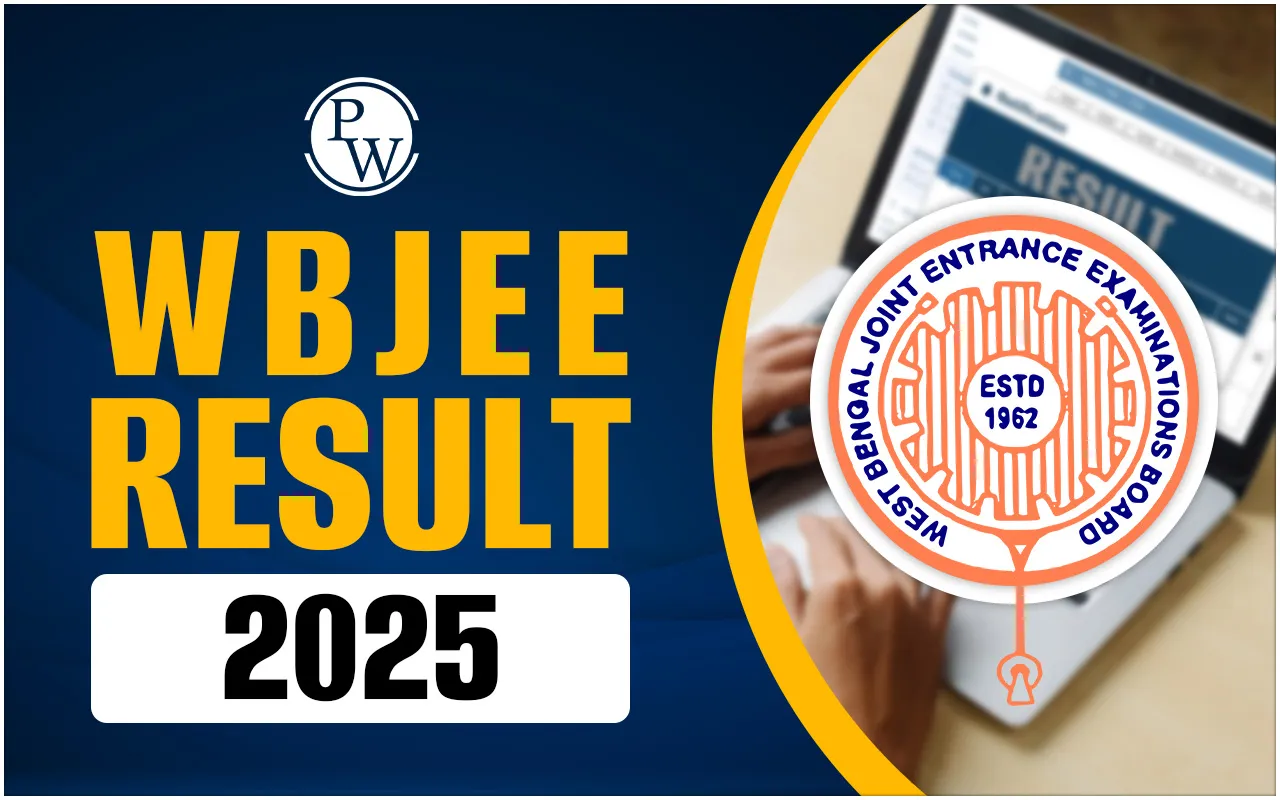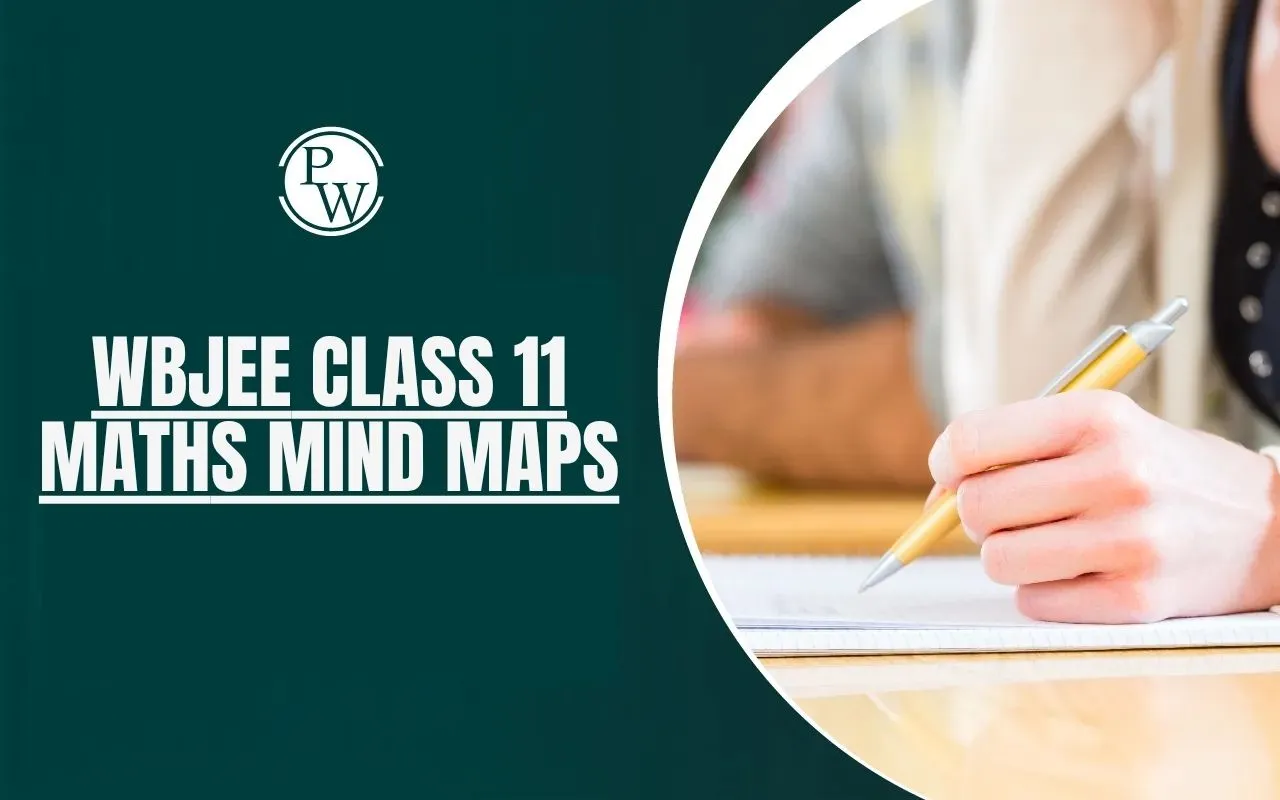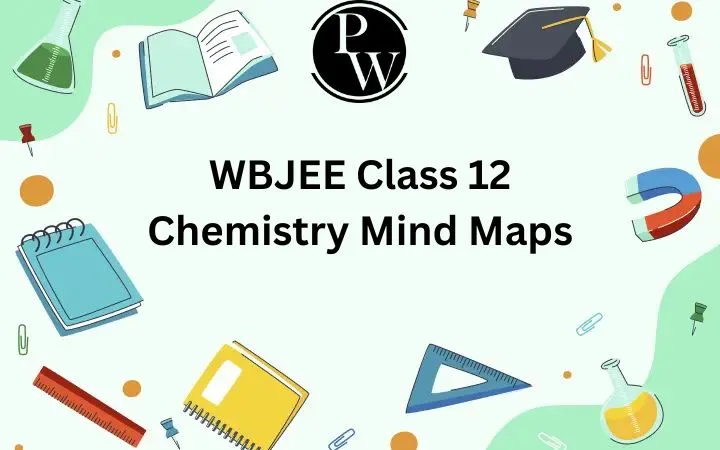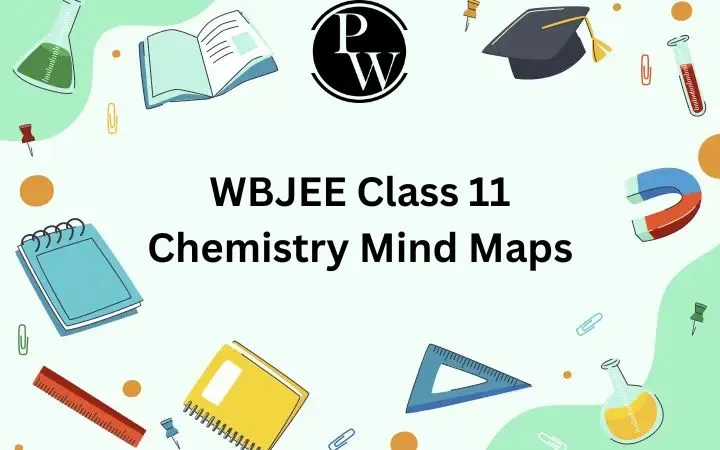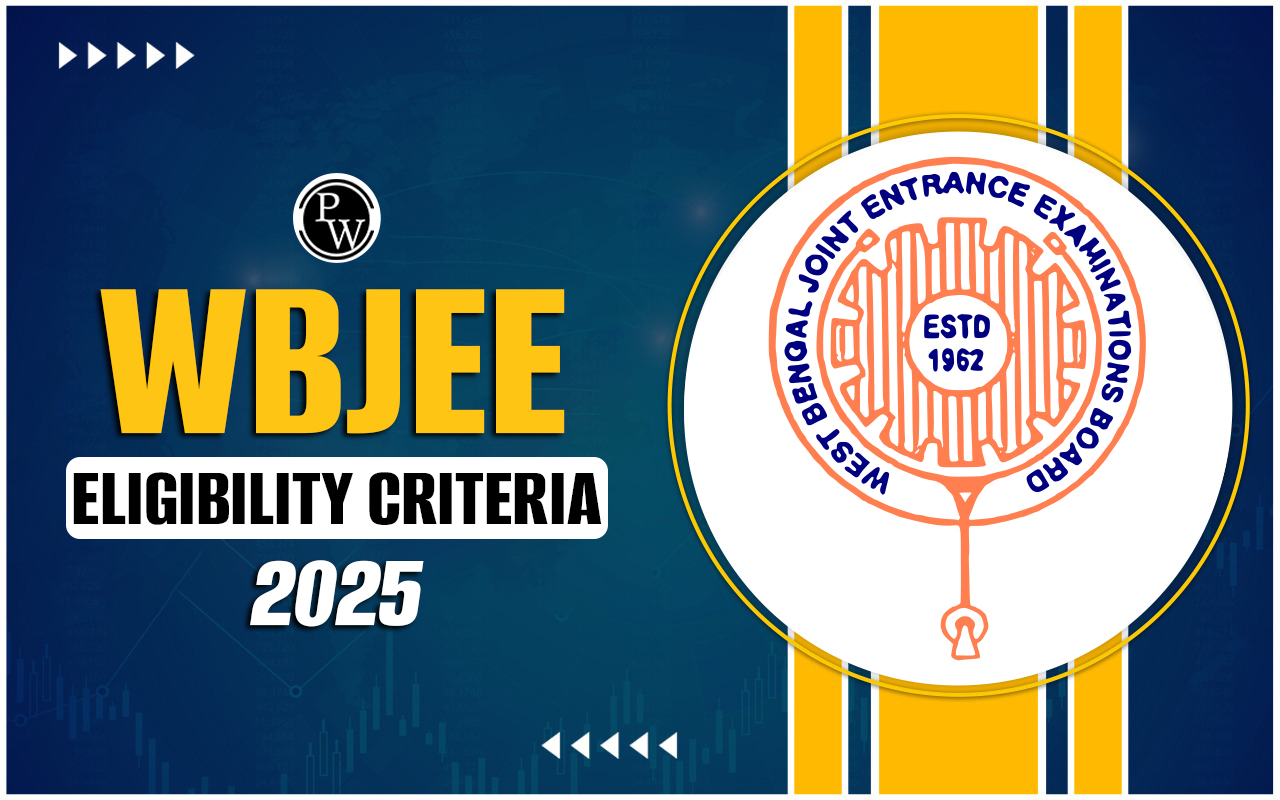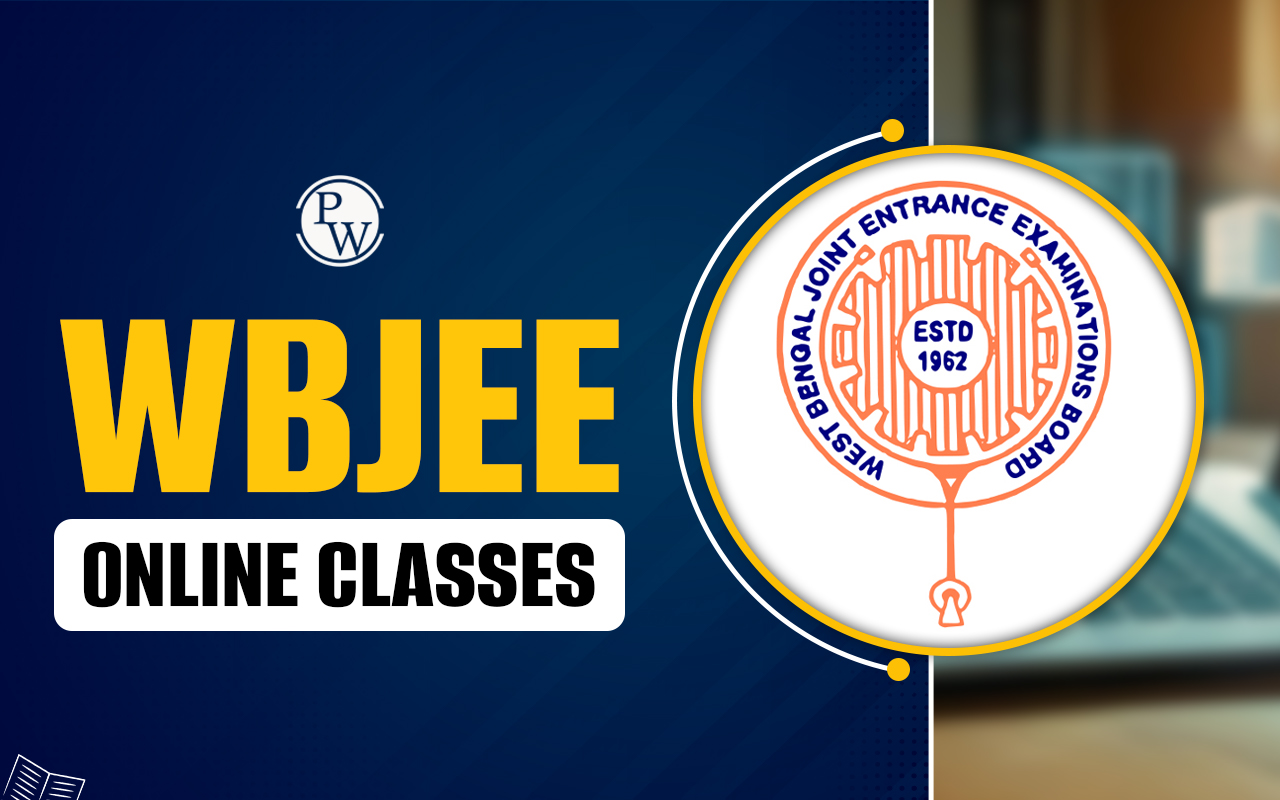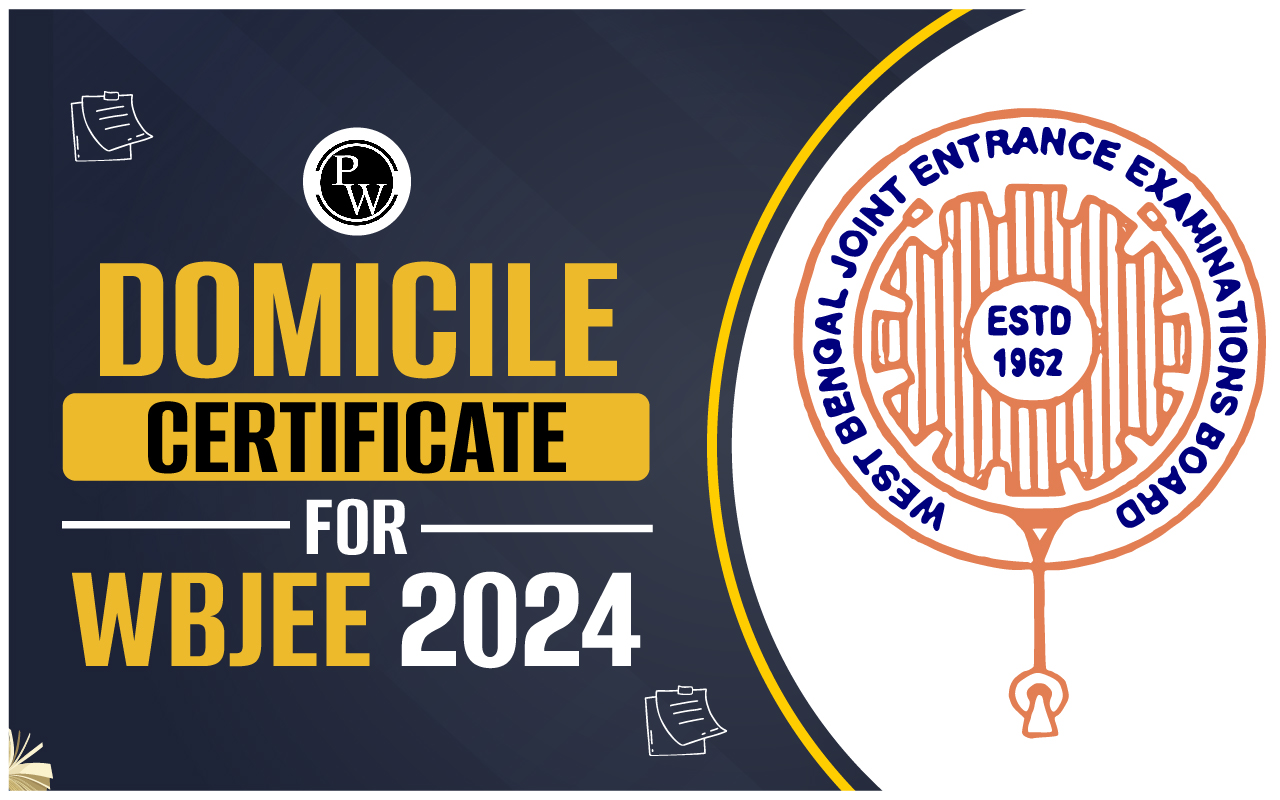
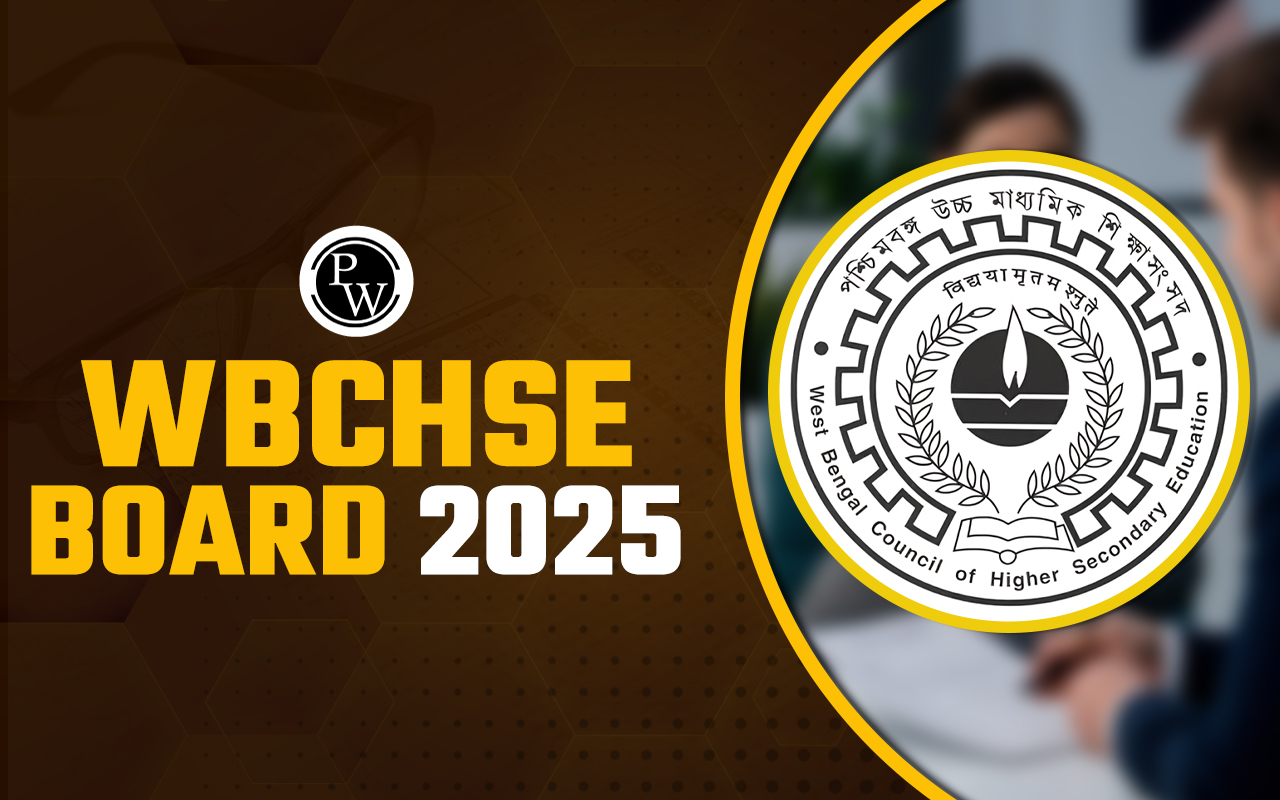
WBCHSE Board 2025 Syllabus for Class 11th Chemistry (Semester – 1)
This syllabus introduces students to essential chemical concepts and practices, laying a strong foundation in chemistry through theoretical and practical approaches, encouraging analytical thinking and scientific inquiry.| Unit | Topics |
|---|---|
| Unit- 1 | Some Basic Concepts of Chemistry: Laws of chemical combination. Concept of elements, atoms and molecules. Atomic and molecular masses. Mole concept and molar mass, percentage composition, empirical and molecular formula, chemical reactions, stoichiometry and calculations based on stoichiometry. Different concentration terms of solutions and related calculations. |
| Unit- 2 | Structure of Atom: Bohr’s model and its limitations, concept of shell and sub-shells, the dual nature of matter and light, de Broglie’s relationship. Heisenberg uncertainty principle, Schrödinger wave equation (elementary idea only). Concept of orbitals, quantum numbers, shapes of s, p and d orbitals, rules for filling electrons in orbitals: Aufbau principle, Pauli exclusion principle and Hund’s rule, exchange energy, electronic configuration of atom, stability of half-filled, completely filled orbitals |
| Unit- 3 | Classification of Elements and Periodicity in Properties: Modern periodic law and the present form of the periodic table, periodic trends in properties of elements – atomic radii, ionic radii, van der Waals’ radii, ionization enthalpy, electron gain enthalpy, electronegativity, valency. Nomenclature of elements with atomic number greater than 100. |
| Unit- 4 | Chemical Bonding and Molecular Structure: Valence electrons, ionic bond, bond parameters, covalent bond, Lewis structure, polar character of covalent bond, covalent character of ionic bond, valence bond theory, resonance, geometry of covalent molecules, VSEPR theory, concept of hybridisation, involving s, p and d orbitals and shapes of some simple molecules, intermolecular interactions, Hydrogen bonding, Molecular orbital theory of homonuclear diatomic molecules (H2, He2, O2, N2, F2 – qualitative idea only) |
| Unit- 5 | States of Matter — Solids and Gases: Classification of solids (elementary idea): molecular, ionic, covalent and metallic solids, amorphous and crystalline solids (elementary idea), unit cell in two-dimensional and three-dimensional lattices, packing efficiency, calculation of density of unit cell, packing in solids, voids, number of atoms per unit cell in a cubic unit cell, point defects. Kinetic theory of gas, molecular speeds, Dalton’s law of partial pressure, Graham’s law, deviation of ideal behaviour and van der Waals’ equation, Liquefaction of gases, critical temperature. |
| Unit- 6 | s-Block Elements (Group 1 and Group 2 elements): Electronic configuration, occurrence, trends in the variation of properties (such as ionization enthalpy, atomic and ionic radii), trends in chemical reactivity with oxygen, water, hydrogen and halogens, hydrides (ionic, covalent and interstitial), hydrogen peroxide (preparation, properties, structure & use.), hydrogen as a fuel. Biological importance of Na, K, Mg, Ca. |
| Unit- 7 | p-Block Elements (Group 13 and Group 14 elements): General introduction to p-block elements, electronic configuration, occurrence, variation in properties, oxidation states, and trends in chemical reactivity of group 13 and 14 elements. Group 13: Boron: physical and chemical properties of compounds of Boron: Boron oxides, boric acid, borates and B2H6 Aluminium: Reactions of Al with acid and alkali, uses of Al, Preparation and uses of LiAlH4 and Al2O3. Group 14: Carbon: catenation, allotropic forms, nano carbon, graphene, physical and chemical properties of two oxides of carbon- CO and CO2, Silicon: some compounds of silicon and their important uses – Silicon tetrachloride (Structure, preparation, hydrolysis and reduction reaction only), silicates [structure of open chain silicates constructing of, use of zeolites |
WBCHSE Board 2025 Syllabus for Class 11th Chemistry (Semester – 2)
Students advance their knowledge of chemistry, focusing on more complex concepts and laboratory techniques, promoting a deeper understanding of chemical processes and the application of scientific methods.| Unit | Topics |
|---|---|
| Unit- 1 | Thermodynamics: Concepts of system (including types of system), surroundings. Work, heat, energy, extensive and intensive properties, state function, Zeroth law of thermodynamics and definition of temperature. The first law of thermodynamics – internal energy change (∆U) and enthalpy change (∆H), Enthalpy of bond dissociation, combustion, formation, atomization, ionization, solution and sublimation. Transformation of state. Hess’s law of constant heat summation, Born Haber Cycle and its application. 2nd law of thermodynamics, the introduction of entropy as a state function, Gibbs energy change for spontaneous and non-spontaneous processes, criteria for equilibrium. |
| Unit- 2 | Equilibrium: Equilibrium in physical and chemical processes, dynamic nature of equilibrium, law of mass reaction, equilibrium constant, factors affecting equilibrium – Le Chatelier’s principle; ionic equilibrium, ionization of acids and bases, strong and weak electrolytes, degree of ionization of polybasic acids, acid strength, concept of pH Henderson Equation. Hydrolysis of salts (elementary idea). Buffer solutions, solubility product, common ion effect (with illustrative examples). |
| Unit- 3 | Redox Reactions: Concept of oxidation and reduction, redox reactions, oxidation number, balancing redox reactions in terms of loss and gain of electrons and change in oxidation number, applications of redox reactions in permanganometry and dichromatometry. |
| Unit- 4 | Organic Chemistry: Some basic principles: General introduction, classification and IUPAC nomenclature of organic compounds. Electronic displacements in a covalent bond: inductive effect, resonance and hyperconjugation. Homolytic and Heterolytic fission of a covalent bond: free radicals, carbocations, carbanions electrophiles and nucleophiles, types of organic reactions. Elementary idea of addition, elimination and substitution reactions. |
| Unit- 5 | Hydrocarbons: Classification of hydrocarbons Alkanes – Nomenclature, isomerism, conformations (ethane only), physical properties (up to 6 carbons) and chemical reactions including halogenations, free radical mechanism, combustion and pyrolysis. Alkenes – Nomenclature, structure of double bond (ethene), geometrical isomerism, physical properties (up to 3 carbons) methods of preparation; chemical reactions; addition of hydrogen, halogen, water hydrogen halides (Markovnikov’s addition and peroxide effect), ozonolysis, oxidation, mechanism of electrophilic addition. Alkynes – Nomenclature, structure of triple bond (ethyne), physical properties (up to 3 carbons) preparation, chemical reactions; acidic character of Alkynes, addition reaction of – hydrogen, halogens, hydrogen halides and water. Aromatic hydrocarbons; Introduction, IUPAC nomenclature; Benzene; resonance aromaticity; chemical properties; mechanism of electrophilic substitution – nitration, sulphonation, halogenations, Friedel-Crafts alkylation and acylation, carcinogenicity and toxicity. |
| Unit- 6 | Environmental Chemistry: Environmental pollution – air, water and soil pollution (cause and effects), Primary and secondary pollutants (solid and liquid), chemical reactions in the atmosphere, smog, pollution due to industrial wastes; solid waste management (elementary idea only), SPM, RSPM, green chemistry as an alternative tool for reducing pollution. Water preservation and protection, Strategy for control of environmental pollution. |
WBCHSE Board 2025 Syllabus for Class 11th Mathematics (Semester – 1)
This syllabus covers fundamental mathematical concepts and methods, aimed at enhancing students' problem-solving skills and logical reasoning, preparing them for more advanced mathematical studies.| Unit | Topics |
|---|---|
| Unit- 1 |
SETS AND FUNCTIONS
|
| Unit- 2 |
ALGEBRA
|
| Unit- 3 |
CALCULUS
|
WBCHSE Board 2025 Syllabus for Class 11th Mathematics (Semester – 2)
Building on earlier concepts, this syllabus delves into more intricate mathematical theories and applications, challenging students to develop advanced analytical and problem-solving abilities.| Unit | Topics |
|---|---|
| Unit- 1 |
ALGEBRA
|
| Unit- 2 |
COORDINATE GEOMETRY (2D)
|
| Unit- 3 |
STATISTICS AND PROBABILITY
|
WBCHSE Board 2025 Syllabus for Class 11th Physics
This syllabus introduces key physics concepts and principles, fostering a strong understanding of the physical world through theoretical study and practical experimentation, laying the groundwork for further studies.| Unit |
|---|
| Unit – I Physical World & Measurement |
| Unit – II Kinematics |
| Unit – III Laws of motion |
| Unit- IV Work, Energy & Power |
| Unit – V Motion of System of Particles & Rigid Body |
| Unit- VI Gravitation |
| Unit- VII Properties of Bulk Matter |
| Unit- VIII Thermodynamics |
| Unit- IX Kinetic Theory of Gases |
| Unit- X Oscillations & Waves |
WBCHSE Board 2025 HS Routine
The WBCHSE Board 2025 HS Routine provides the exam schedule, allowing students to plan their preparation efficiently. The routine is a key resource for organizing study time leading up to the exams.| WBCHSE Board 2025 HS Routine | |
| Exam Dates | Subjects |
| 3rd March 2025 | Bengali (A), English (A), Hindi (A), Nepali (A), Urdu, Santhali, Odia, Telugu, Gujarati, Punjabi |
| 4th March 2025 | Healthcare, Automobile, Organised Retailing, Security, IT and ITES, Electronics, Tourism and Hospitality, Plumbing, Construction, Apparel, Beauty and Wellness, Agriculture, Power - Vocational Subjects |
| 5th March 2025 | Bengali (B), English (B), Hindi (B), Nepali (B), Alternative English |
| 6th March 2025 | Economics |
| 7th March 2025 | Physics, Nutrition, Education, Accountancy |
| 8th March 2025 | Computer Science, Modern Computer Application, Artificial Intelligence, Data Science, Environmental Studies, Health and Physical Education, Music, Visual Arts |
| 10th March 2025 | Commercial Law and Preliminaries of Auditing, Philosophy, Sociology |
| 11th March 2025 | Chemistry, Journalism and Mass Communication, Sanskrit, Persian, Arabic, French |
| 13th March 2025 | Mathematics, Psychology, Anthropology, Agronomy, History |
| 17th March 2025 | Biological Science, Business Studies, Political Science |
| 18th March 2025 | Statistics, Geography, Costing and Taxation, Home Management and Family Resource Management |
WBCHSE Board 2025 Registration
The WBCHSE Board 2025 Registration is an essential process for all students appearing for the West Bengal Class 12 exams. Both regular and private candidates need to complete their registration through the official website. Below are the detailed steps to register for both private and regular students to ensure successful enrollment.WBCHSE Board 2025 Registration Process for Regular Students
- Visit the WBCHSE official website.
- Select the registered school under the ‘Form’ heading.
- Enter login details and create a password.
- Save login details on the browser.
- Complete the registration and print the form for later use.
WBCHSE Board 2025 Registration Process for Private Students
- Visit the WBCHSE official website.
- Access the ‘WBCHSE Registration Form’ under the Academics section.
- Fill out the required information in the form.
- Submit the form.
- Complete the mandatory registration payment.
WBCHSE Board Question Papers
The WBCHSE Board Question Papers are crucial resources for students preparing for the West Bengal Class 12 exams. These papers provide a clear understanding of the exam pattern, the types of questions asked, and the marking scheme. By practicing previous years' question papers, students can improve their time management skills, identify important topics, and enhance their overall exam readiness. Additionally, solving these papers helps in building confidence, as students become familiar with the difficulty level and style of questions they might encounter in the actual exams.WBCHSE Board Question Papers PDF Download
WBCHSE Board 2025 Preparation Tips
Establish a Structured Study Routine - Plan your day by dividing time between all subjects, and allocating more time to challenging areas. Stick to this routine daily, and ensure that it includes sufficient time for rest and revision. A well-planned routine prevents last-minute cramming and helps cover the entire syllabus systematically.
Allocate Time Wisely Across All Subjects - Time management is key to balancing your study load. Prioritize subjects based on difficulty and importance. For instance, subjects with higher weightage or those you find challenging should be given more study time. Make sure to include short breaks between sessions to keep your mind fresh and focused.
Prepare Concise Notes for Key Topics - As you study, make concise notes on important topics and key questions. These notes should be easy to review, containing bullet points, formulas, and summaries. This practice not only aids in quick revision but also reinforces your understanding of the material, making it easier to recall during exams.
Cover the Entire Syllabus in Advance - Aim to complete the WB syllabus well before the final exams. This gives you ample time for revision and practice. Breaking down the syllabus into smaller sections and setting weekly or monthly goals can help in covering all topics thoroughly without feeling overwhelmed.
Regularly Review Study Materials - Consistent revision is vital for retention. Go over your study materials daily to reinforce what you’ve learned. Avoid procrastination, especially with difficult chapters. Reviewing topics frequently keeps the information fresh and helps identify areas that need more focus.
Solve Previous Years’ Question Papers - Practicing with past papers is one of the most effective ways to prepare. It familiarizes you with the exam pattern, question types, and timing. Solving these papers under exam-like conditions helps improve speed and accuracy while also building confidence.
Seek Clarification on Doubts Promptly - Whenever you encounter a difficult topic or concept, seek help immediately from teachers or peers. Clearing up confusion as soon as it arises prevents misunderstandings and strengthens your knowledge base, ensuring that you are well-prepared for the exam.
Incorporate Active Learning Techniques - Active learning, such as teaching others, discussing topics with friends, or using flashcards, can be highly beneficial. This approach engages different parts of your brain, aiding in better understanding and retention of information. It also makes the learning process more interactive and enjoyable, reducing study fatigue.
WBCHSE Board 2025 FAQs
1. What is the date of the HS exam 2025 in West Bengal?
2. Will there be board exams in 2025 for class 12?
3. How should I prepare for the WBCHSE Board 2025 exams?
4. What is the registration process for WBCHSE Board 2025 exams?





